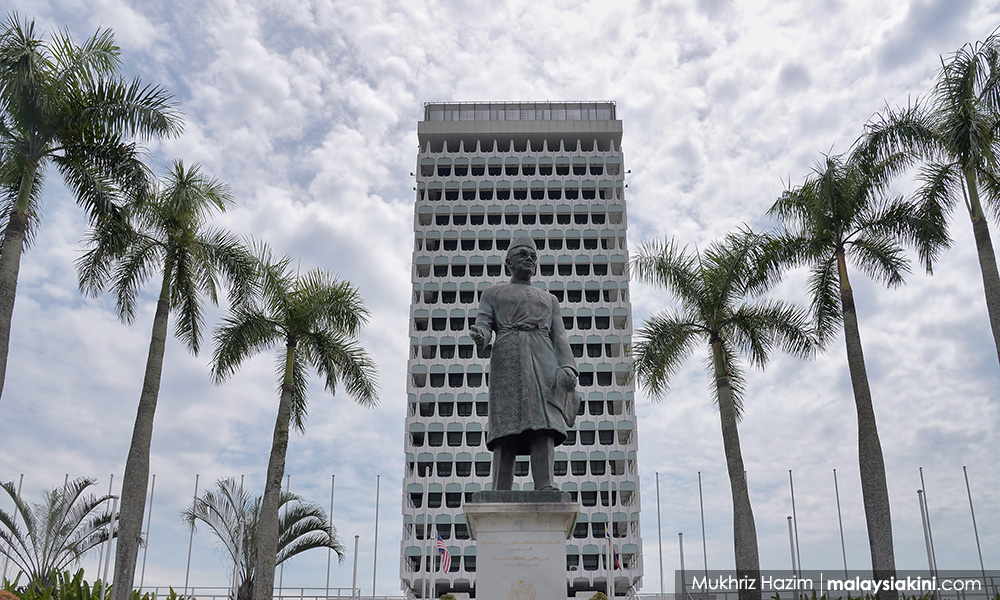KINIGUIDE | Emergency has been declared by the Yang di-Pertuan Agong today (Jan 12, 2021). This instalment of KiniGuide will attempt to answer some questions we have been receiving based on the prime minister’s speech and our panel of legal experts.
Who is in power?
A civilian cabinet consisting of mostly elected MPs, led by Pagoh MP Muhyiddin Yassin, has executive power.
What new powers have been conferred?
This will depend on the new Emergency Ordinances. We will update this reply when these documents are published.
Muhyiddin gave some examples of what ordinances, when gazetted, can be used for:
- Suspending Parliament and elections.
- Forming an independent committee to advise the Agong on whether the proclamation of emergency was still necessary.
- Government use of private hospitals, land, buildings or property to treat Covid-19 patients.
- Compel private entities to help government agencies, especially public hospitals.
- Overcome rules which frustrate the delivery of services.
- Empower the military to enforce existing laws.
- Amend the Prevention and Control of Infectious Diseases Act 1988 to increase penalties.
- Address economic sabotage, monopolies and profiteering during a pandemic.
How can executive power be checked?
We don’t know.
Are normal laws and the Federal Constitution suspended?
Normal laws continue to apply, except for those affected by Emergency Ordinances.
What we do know is that during the emergency period, the executive will not allow Parliament to convene nor elections be held as required by existing laws.
Is Parliament scheduled to sit in the near term?
The Dewan Rakyat is scheduled to convene three times this year: March 8-April 8; June 14-July 1; and Oct 4-Dec 8.

What does it mean if Parliament cannot sit?
Laws and supplementary supply bills (supplementary budget) cannot be passed. Confidence in the prime minister cannot be tested.
Can the prime minister be changed during an emergency?
In theory, yes. A challenger will have to convince the Agong that he or she has the backing of the majority of the 220 MPs to be appointed prime minister, by virtue of Article 43(2)(a) of the Federal Constitution.
Can the government raise funds without a supplementary supply bill?
Yes. That has been the standard practice. Normally, the executive would seek permission from Parliament for more funds after borrowing it because it has the majority.
What elections are scheduled to be held?
There are two vacancies to be filled in the Dewan Rakyat (Batu Sapi and Gerik) and one vacancy for the Sabah legislative assembly (Bugaya).
The Sarawak legislative assembly will expire on June 7. Elections have to be called within 60 days.
When can elections be held?
When the yet-to-be-named independent committee is satisfied that it is safe to do so.
Who sits on this independent committee?
Muhyiddin did not reveal details. The Agong said the executive has proposed that the committee will be bi-partisan and include relevant experts.
Can courts continue to operate?
Yes. The prime minister gave his assurance and even stressed that he will not interfere in court affairs.
However, one can expect near term court proceedings to be delayed due to movement control order (MCO) restrictions and the fact that a lot of people have to quarantine due to Covid-19 contact tracing.
Can any of the emergency ordinances be challenged?
No. Article 150(8) stipulates that no court can do so, for whatever reason.
RELATED REPORTS
- King consents to emergency declaration, to be in force until Aug 1
- Dr M: Govt has full power to curb Covid-19, no need emergency
- Bipartisan, independent panel to advise Agong on emergency
- Muhyiddin: Emergency not military coup, civilian govt to remain
- Opposition MPs question need for emergency when MCO sufficient
- Stern action against those who disrupt Covid-19 fight, economy - PM warns
- No election or Parliament during emergency - PM
- MP SPEAKS | Will PN do a good job with proclamation of emergency?
- Emergency won't solve problems of a minority govt - analyst
- Miti reveals green list, Azmin assures SOP will ensure business continuity
- No check on PM's powers as parliament suspended - lawyers
- What does emergency mean?
- Umno leader cries human rights violation over PM's 'warning'
- Najib's loyalist pushes for interim PM despite Muhyiddin's emergency powers
- Harapan meeting at 4pm amidst emergency proclamation

